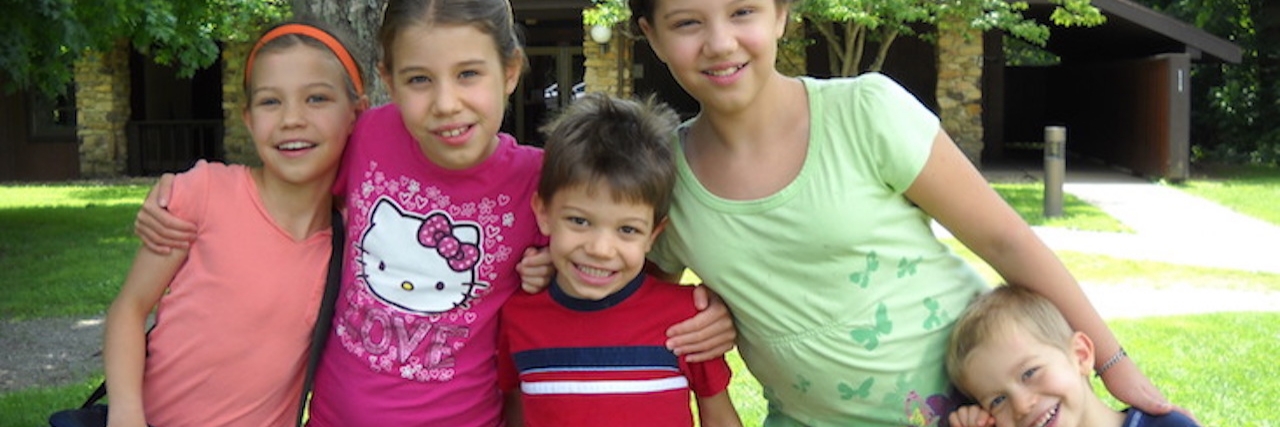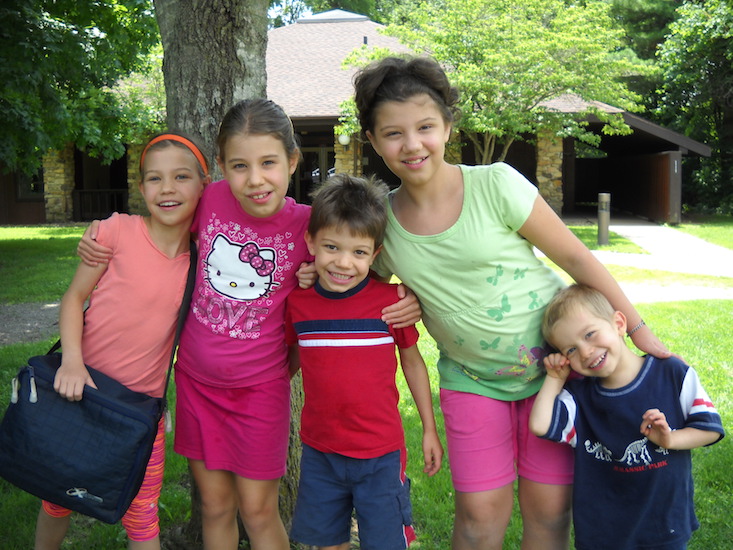6 Things I Did to Help Find the Diagnosis for My Daughters' Rare Disorder
I used to believe that if you had something wrong with you, you could head to the doctor and he or she would run a few tests and then tell you what was wrong. It wasn’t until I had two daughters born with a rare presentation of a rare genetic condition that I realized even specialists might not have answers for us.
Three geneticists and a dozen specialists missed the correct diagnosis for my daughters, and none of them seemed to think it really mattered. I finally realized I might be the only person in the world who was capable of dedicating years to research my daughter’s condition, correctly diagnose it and see that my children get the best care possible. I had to come to terms with the reality that I was the world’s leading expert on my daughters.
Here’s what I did to help my daughters get the best medical care and why it mattered:
1. I learned as much as I could about their symptoms.
When my girls were little, all I knew was they had an unknown genetic kidney disease, so I started with learning about kidneys. I Googled hundreds of foreign-sounding medical terms, looked at medical diagrams of kidneys and learned the proper reference ranges for the lab tests the doctors were ordering. I asked questions at appointments and asked the doctors to use medical terminology with me instead of layman’s terms. If I didn’t understand something, I’d ask them to explain it. I made sure they were helping me learn about my daughter’s condition.
I also began requesting copies of my girls’ lab and imaging test results. I wanted to read them myself and learn to understand them. I did occasionally misunderstand results and annoy some doctors, but it was a necessary part of the learning process.
2. I helped all the girls’ specialists work together.
I kept a binder for each of my girls’ test results as well as CDs with imaging pictures, which I took to all of their appointments. With the girls seeing up to six different specialists, things could get confusing. Having test results easily accessible did four things: helped each specialist know exactly what the others were doing; helped each specialist view my child as a whole child with a complex set of symptoms, rather than just focusing on one body system; saved my girls from unnecessary repeat procedures; and won the instant respect of the medical professionals.
I came to each appointment prepared to update the doctors on new symptoms, test results or concerns for my children. I came ready to ask questions about any research I had been doing. I came ready to ask if they would be willing to run tests that I thought might be helpful.
3. I read medical journal articles to understand all the possible diagnoses for my girls and to pinpoint which ones best matched their symptoms.
As my girls grew older, their list of unexplained symptoms grew: sensory processing disorder, Asperger syndrome, strabismus (crossed eyes), heart murmurs, speech apraxia, abnormally slow brain waves, vision problems, inexplicable weight gain and developmental delays. None of these were symptoms that should have resulted from the kidney disease the doctors thought they had. They didn’t think that a genetic diagnosis would change the way we managed the symptoms, but I knew it mattered, so I dedicated myself to finding it. I spent hours and hours on Wikipedia, Pub Med, Genetics Home Reference and good old Google searches.
4. I went to conferences about genetic disorders that related to their symptoms.
In the 10 years it took to diagnose my daughters’ disorder, my husband and I attended four medical conferences on syndromes related to my girls’ symptoms. The first three turned out not to be their syndrome, but I gained valuable information, experiences and relationships from attending these conferences that helped to eventually lead us to the correct diagnosis.
5. I networked with people who were knowledgeable about my girls’ possible diagnoses.
I located online e-mail groups and later Facebook groups where I could ask questions and read about other people’s experiences. I quickly learned that parents and the patients who live with the genetic syndromes can be the real experts. The people in these groups were also able to point me to doctors and researchers who might be willing to read an e-mail from me and give me an opinion on my daughters’ case.
6. I enrolled my girls in studies that included free genetic testing.
After years of learning, researching, pushing for answers and ruling out conditions, I was relatively certain my girls had a rare presentation of a rare genetic disorder called Bardet-Biedl Syndrome (BBS), even though a geneticist at a major children’s hospital told me it wasn’t. I found an upcoming conference at the University of Iowa where free genetic testing was being offered for study purposes. Two months later we received the results of the girls’ genetic testing: they did indeed have BBS.
Why does a diagnosis matter?
It’s important my girls received a correct diagnosis so we can properly understand and address the challenges they face. It’s important for everyone to know my daughter will never “grow out of” her speech impairment, so she can receive the highest quality therapy for as long as it’s needed. It’s important the doctors understand my daughter’s obesity is a direct result of her hypothalamus not receiving satiety signals. It’s important to know my girls have BBS because it can cause a host of different problems in nearly every body system we need to be actively watching for, not just reacting to.
When my doctors told me that a diagnosis didn’t matter, they didn’t realize we needed to be screening the girls for thyroid disorder, hormone imbalances, lipid problems and type 2 diabetes. They also didn’t realize my girls were slowly losing their vision, and they would likely be blind by early adulthood or sooner. But because we have this diagnosis we can do everything possible to prepare them now and to be ready when that day comes.
With a diagnosis, I don’t have to live my life surprised and bewildered by my girls’ condition and every new symptom that unexpectedly pops up. For the first time, I feel a measure of strength and dignity where there had been doubts and fear, and now that we know what we are fighting, we are ready to fight.
Do you have a story about your experience with disability or disease? Maybe a moment that made a big impact on you? Please send it to community@themighty.com and include a photo for the story, a photo of yourself and a 1-2 sentence bio. Check out our Share Your Story page for more about our submission guidelines.


